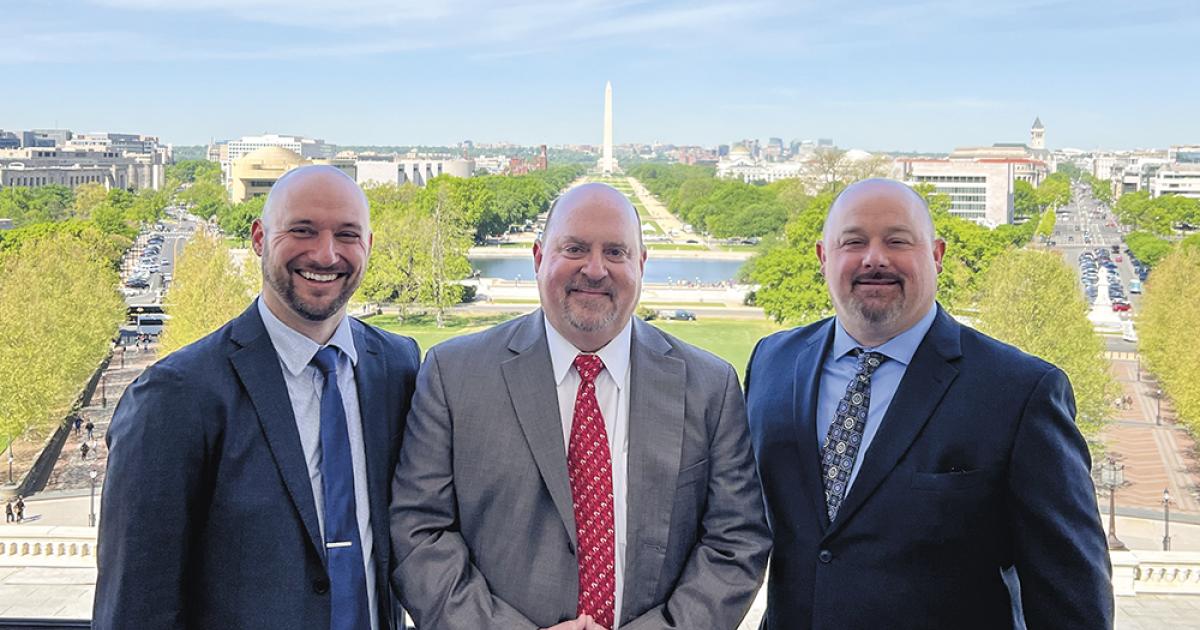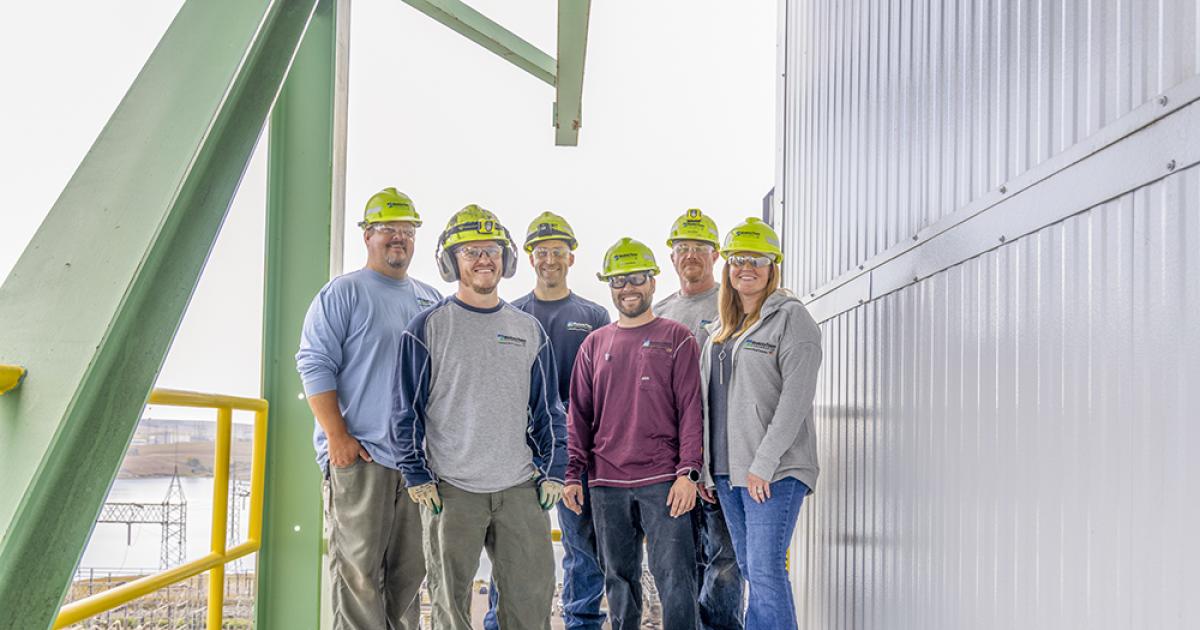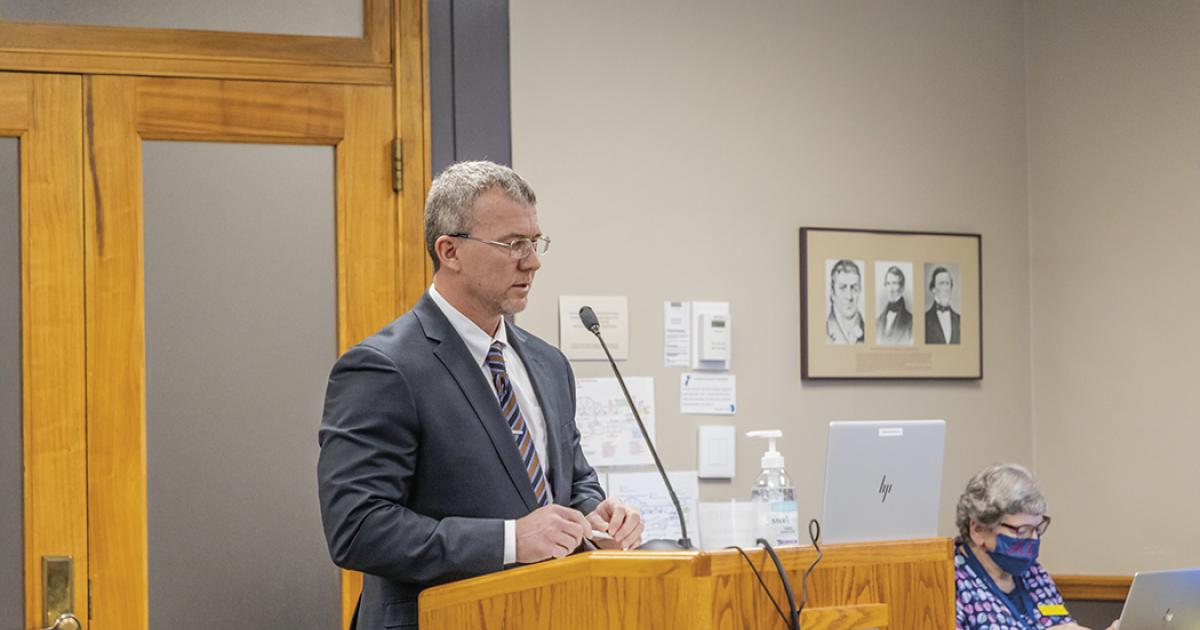N.D. electric co-op general managers Jon Beyer, Jerry King and Travis Kupper advocate for their cooperatives on Capitol Hill April 23.
More than 1,200 electric cooperative leaders gathered April 21-24 in Washington, D.C., to urge Congress to oppose the U.S. Environmental Protection Agency’s (EPA) power plant rule and support full funding of U.S. Department of Agriculture (USDA) programs that benefit rural America.
In May 2023, EPA proposed initial draft rules to limit carbon dioxide emissions from coal- and gas-fired power plants. Electric cooperatives oppose the rule, which they say is a threat to electric reliability and affordability.
“We have opposed this proposed rule for setting unrealistic deadlines and relying on technologies, such as carbon capture and hydrogen, that are not yet ready for wide-scale use,” said Hill Thomas, National Rural Electric Cooperative Association vice president of legislative affairs.
At presstime, EPA’s final rule had yet to be issued, though it was expected as early as April.
“While the United States’ electricity demand is increasing, policy decisions are driving always available power plants to retire at too rapid a pace without adequate replacement capacity,” NRECA stated in an August 2023 letter to EPA opposing the rule.
A lengthy and complex federal environmental review and permitting process compounds the issue. To build reliable replacement generating assets and requisite infrastructure like transmission lines takes time. On average, it takes federal agencies more than four years to complete the environmental review process, while a quarter of projects take more than six years, NRECA cites in the letter.
“The EPA rule is the most pressing issue electric cooperatives face today. It jeopardizes the ability to keep the lights on, and it packs a one-two punch to our industry by advancing the premature closure of always available, dispatchable power and making it more difficult to build new power plants,” said Josh Kramer, North Dakota Association of Rural Electric Cooperatives executive vice president and general manager. “Electric cooperatives are innovative, they’ve diversified and continue to make progress, but they are not willing to sacrifice reliability. The rule – as it was proposed in May of last year – relies on technologies not yet available or adequately demonstrated. It will lead to more blackouts, higher costs and uncertainty for families and businesses.”
KEY ISSUES
In addition to the EPA rule, other key issues for electric cooperatives during visits with policymakers and congressional staff included:
- USDA funding: Co-ops rely on robust funding for USDA programs that support rural economic development and infrastructure improvements.
- Transformers: Electric cooperatives continue to experience long lead times for distribution transformers, which lower voltages to levels safe for home and business use, amid global shortages and supply chain issues. A proposed U.S. Department of Energy (DOE) rule has the potential to exacerbate the issue further, leading to even longer wait times. Co-ops support a bipartisan Senate bill to effectively override the DOE rule.
- Pole attachments: Citing safety and reliability concerns, cooperatives oppose attempts to open access to co-op power poles in an effort to force not-for-profit co-ops to subsidize for-profit internet providers.
RURAL MAIL DELIVERY
North Dakota’s electric cooperatives also advocated for postal reform.
As the U.S. Postal Service (USPS) consolidates processing centers around the country, rural mail service suffers. Delays and longer delivery times are common. While service worsens, postal costs continue to rise.
The cost of a Forever postage stamp is expected to increase 5 cents in July, from 68 cents to 73 cents. This would be the sixth price hike since January 2021.










